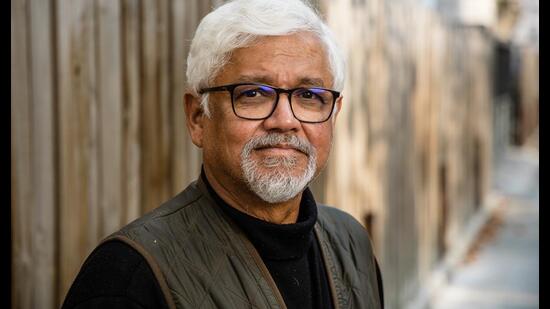How did the idea for Smoke and ash Take shape? You mentioned that you also considered giving up the project. Why?

As I explain in my book, I gave up the project because it is a sad and in some ways unpleasant story. The reason I got back into it is because I felt that this story needed to be better known.
The narrative draws a historical link between the time of the Opium Wars and the current opioid epidemic in the West, and reads almost like a history of Western capitalism, starting with the contradictions inherent in the myth of “free trade.” Is that something that happened organically, or was that your intention?
Writing the Ibis Trilogy was a process of discovery for me. When I started writing the novels, I didn’t know much about this story, but over time I was able to gather a lot of material. And it is indeed a story about the profound contradictions at the core of the myth of “free trade”. What really surprised me was the extent to which the opium trade was responsible for the birth of the modern, globalized world system. The number of corporations and financial institutions that are rooted in this story is truly staggering.
There are places in the text where you have to write the Ibis Trilogy. You mention that certain assumptions you made as an author while writing, such as the encounter of the Parsi merchants with China, later turned out to be wrong, or the difficulty of empathising with the feelings of a soldier during battle. Was Smoke and ash also an attempt to provide some insight into the challenges encountered in writing literary works of historical fiction?
Yes, Smoke and ashis, among other things, a reflection on the difficulties (and rewards) of writing historical novels. It is very difficult to understand the circumstances in which people lived in the past. For example, if you step onto an 18th or 19th century sailing ship, you will find that the sailors’ living quarters were incredibly small and cramped – how people could live in them for years is very difficult for us today to understand.
What is also expressed in the narrative is the lack of a separate linguistic domain, a vocabulary, and the need to address the absence of this domain in order to counteract the current political and economic discourse that is inevitably biased towards the Global North. How do you think this project can be advanced?
It is true that the global North has shaped the language we use to talk about the past and present. But I believe we are witnessing an epochal geopolitical shift – one that will reshape not only the balance of power between the West and the rest, but also the vocabulary we use to imagine and represent the global past (and present). We are now on the brink of a multipolar world system and that will change everything.

Archives, especially those that were kept and preserved as a means of continuing the colonial project of knowledge production, are full of selective and, in some cases, inaccurate accounts of what actually happened. How would you say the Ibis trilogy responded to this?
Colonial archives are full of selective or inaccurate accounts of what actually happened. This is because they were often created and maintained by the colonizers, who had a vested interest in portraying themselves in a positive light. A notable example is the use of the word “pacification” in reference to colonial wars against indigenous resistance. This type of vocabulary must always be contested.
In your opinion, what role do fiction and non-fiction books play in dealing with the current ecological situation?
Fiction can help us imagine new ways of living and see the world from different perspectives. It can help us understand the interconnectedness of all living things and how our actions affect the planet. Nonfiction can give us the science and data we need to understand the ecological crisis we face. It can also help us understand different perspectives on the crisis and how it affects different communities around the world. I believe that both fiction and nonfiction can help us develop the empathy and understanding we need to address the ecological crisis. They can help us see the world through the eyes of others and understand the interconnectedness of all living things.
Simar Bhasin is an independent journalist.

